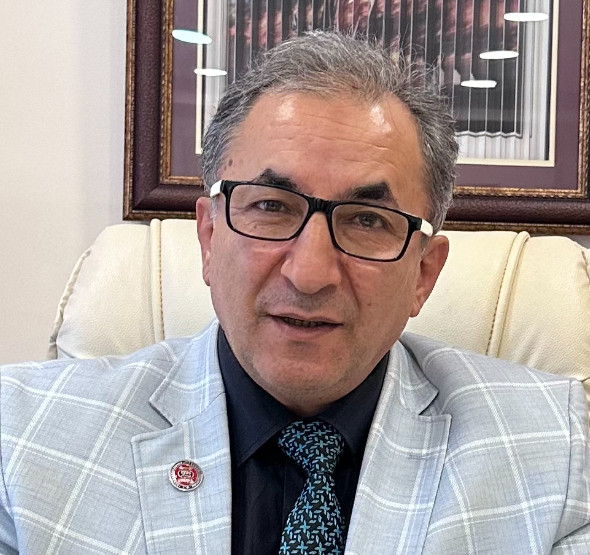While Türkiye is preparing for its most important election in recent history, the issue of "the return of Syrians" continues to be one of the hot topics of domestic politics. Amidst promises of "sending them back," "they will leave," and "they will return," many of the comments reveal a great deal of ignorance and indifference to the current situation in Syria.
A few days ago, the British newspaper The Guardian published a very striking file about what happened to the homes or other properties that refugees left behind in Syria. The file, which was prepared with the testimony of refugees from different countries, stated that the Damascus regime had started to redistribute the country's real estate according to its political projection, and that thousands of refugees abroad no longer have homes to return to because of this.
To give some concrete examples, let me tell you about some of them:
A Syrian named only as "Abdullah" for security reasons learned through a phone call from Damascus that "a distant relative had taken over his home, and that if he did not come to court to testify, he would lose his home." Since Abdullah is also categorized as a "wanted criminal" by the regime, he cannot, of course, return to Damascus. He lost his home in this way, and the hope of returning has effectively disappeared.
A businessman named "Abu Hasan" had to leave his property in rural Damascus in 2014 and allocated it to a large family who had to move within Syria for free. After a while, the family moved out of the house and new people moved in. When his neighbors informed him of the situation, Abu Hasan was very surprised and found out that the house had been forcibly vacated by Syrian intelligence and that the family he had placed in the house had been forced to sign a transfer document at gunpoint.
A doctor named "Iman", who left Syria in 2017, rented out her house in Damascus to a civil servant before going abroad. A few months later, the tenant claimed to have bought the house from the doctor and applied to the official authorities for the title deed transactions, presenting a "formal consent document obtained through Syria's consulate in Istanbul" as evidence. Of course, it is needless to say that the house was immediately given to the new owner and the said consent document was also fake. Iman says, "I have no hope of getting my house back."
In the first half of 2022, at least 125 houses and properties in Damascus alone were documented to have changed hands in this way. Similar cases have also been seen in other cities such as Aleppo, Hama, and Homs. Moreover, since the destruction in these cities cannot be compared to that in Damascus, they are much more susceptible to the transfer of "ownerless" properties. The fact that land registry records have been completely destroyed in the war, that many families no longer have members to follow up on their cases, and that the deep economic crisis that Syria has fallen into has incredibly increased cases of document fraud, are some of the reasons that make these practices child's play.
The regulations that the Syrian regime has implemented on homes and properties are not only intended to punish opposition members who have left the country. This is a reflection of a much wider-scale population design and settlement policy. The process, in which Iran is also directly involved, aims to create a Syria whose ethnic and sectarian balances have been completely disrupted, whose Arab and Sunni identity has been lost, and whose historical personality has been redefined. There are countless examples of this situation throughout history in every region. For example, who remembers today that the geography where Iran is located was once the heart of the Seljuk Empire? Through settlement policies and sectarian massacres, these regions were given a completely different identity over the centuries. The same plan is being implemented at full speed for Syria today. Even Shi'ite demagogues and preachers are saying they have "taken revenge for Hussein" in the historical capital of the Umayyads. Syrian refugees are not only a top priority in our domestic politics but also in countries like Lebanon, Jordan, and Iraq. Lebanon has begun to forcibly return refugees to their countries. It is no secret that some of those who have returned to Syria have been directly imprisoned and tortured. Anas Ali Musaytif (26), a refugee youth who was about to be sent back to his country, committed suicide in Beirut on May 1st because he knew what was going to happen to him. There are many tragic incidents like this.
In conclusion, when we talk about sending Syrians away, we also need to find humane, logical, and implementable answers to the questions of "where and how."




